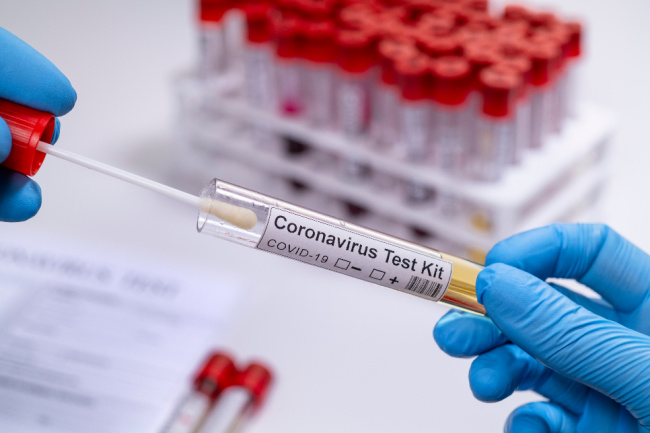
How might men with a history of COVID-19 infection be affected sexually?

Research on COVID-19 is ongoing, and scientists are still learning how the virus affects sexuality.
However, some studies suggest particular issues for men who have had a COVID-19 infection or are recovering from it.
- Erectile dysfunction. Some men have reported being unable to get and keep an erection rigid enough for intercourse.
- Anorgasmia. Case reports have discussed men who were unable to reach an orgasm after recovering from COVID-19. In each case, the situation was temporary and resolved within two weeks.
- Premature ejaculation. Experts have reported cases of men who ejaculate before they wish to.
More research is needed for scientists to fully understand just how COVID-19 might be linked to these issues. However, studies suggest that the following factors could be involved:
- Inflammation and vascular effects of COVID-19 can interfere with erections. Good blood flow to the penis is essential for a firm erection. If blood vessels are damaged or blocked, less blood can flow to the penis. As a result, an erection might be weak, or it might not happen at all.
- The COVID-19 virus has been found in the testes (testicles) of men with a history of COVID-19. The testes produce sperm cells and the hormone testosterone, which is important for men’s sexual function. It’s possible that COVID-19 could lead to low testosterone, reduced sperm count, and poorer sperm motility (movement). Men with a history of COVID-19 might also be at higher risk for orchitis (inflammation of one or both testicles).
- Scientists have also discovered that men with COVID-19 could have hormonal imbalances, particularly higher levels of luteinizing hormone and lower levels of testosterone. Luteinizing hormone helps trigger testosterone production, but high levels may indicate testicular damage.
- COVID-19 – and recovering from it – can take a toll on your entire body. People with “long COVID” may have lingering symptoms, such as fatigue, for months after having the virus. Over time, these health effects could still affect sexual function. For example, people with respiratory problems after COVID might become too fatigued for sex or might become short of breath during sexual activity.
- The psychological impact of COVID-19 also affects sexuality. Coping with the pandemic can cause great stress, anxiety, and depression. In turn, these feelings may dampen sex drive or lead to relationship conflict.
What can men do?
- Do your best to stay healthy. Follow the COVID-19 guidelines in your community, and get the vaccine as soon as you are able. In addition, make sure you are following a healthy diet, exercising as best you can, and getting enough sleep. Staying in touch with family and friends, even through video chat services, can boost your spirits.
- Consider making sexual adjustments. If breathlessness is a problem for your or your partner, try positions that reduce pressure on the chest. If either of you is feeling fatigued, take a break from the activity. You can always go back to having sex when you have more energy.
- Talk to your healthcare provider. If you’re having sexual difficulties, let your provider know. They can suggest treatments or refer you to another professional, such as a counselor or sex therapist, if necessary.
Resources
- Cleveland Clinic
“Yes, COVID-19 Can Cause Erectile Dysfunction”
(April 15, 2021)
https://health.clevelandclinic.org/yes-covid-19-can-cause-erectile-dysfunction/
- Clinical Medicine Insights: Case Reports
Salama, Nader and Saeed Blgozah
“COVID-19 and Male Sexual Functioning: A report of 3 Recovered Cases and Literature Review”
(Abstract. Published: May 28, 2021)
https://journals.sagepub.com/doi/full/10.1177/11795476211020593
- F & S Reviews via ScienceDirect
Tur-Kaspa, Ilan, MD, et al.
“COVID-19 may affect male fertility but is not sexually transmitted: a systematic review”
(April 2021)
https://www.sciencedirect.com/science/article/pii/S2666571921000049#
- International Society for Sexual Medicine
“How does having/recovering from COVID-19 affect female sexual health?”
https://www.issm.info/sexual-health-qa/how-does-having-recovering-from-covid-19-affect-female-sexual-health/
- Inventum (University of Miami Miller School of Medicine)
Hilton, Lisette
“COVID-19 Can Infect Testes with Potential Implications for Male Fertility”
(November 5, 2020)
https://physician-news.umiamihealth.org/covid-19-can-infect-testes-with-potential-implications-for-male-fertility/
- Journal of Endocrinological Investigation
Sansone, A., et al.
“Addressing male sexual and reproductive health in the wake of COVID-19 outbreak”
(Full-text. Published: July 13, 2020)
https://link.springer.com/article/10.1007/s40618-020-01350-1
- Journal of Medical Virology
Ma, Ling, et al.
“Evaluation of sex-related hormones and semen characteristics in reproductive-aged male COVID-19 patients”
(Full-text. First published: July 4, 2020)
https://onlinelibrary.wiley.com/doi/full/10.1002/jmv.26259
- The Journal of Sexual Medicine
Zhang, Yingfei, MSc, et al.
“The impact of mental health and stress concerns on relationship and sexuality amidst the COVID-19 lockdown”
(Abstract. Published: June 27, 2021)
https://www.jsm.jsexmed.org/article/S1743-6095(21)00570-1/fulltext
- MedlinePlus.gov
“Luteinizing Hormone (LH) Levels Test”
(Page last reviewed: December 17, 2020)
https://medlineplus.gov/lab-tests/luteinizing-hormone-lh-levels-test/
- Prehospital and Disaster Medicine
Shoar, Saeed, MD, et al.
“A Late COVID-19 Complication: Male Sexual Dysfunction”
(Full-text. Published: September 22, 2020)
https://www.cambridge.org/core/journals/prehospital-and-disaster-medicine/article/late-covid19-complication-male-sexual-dysfunction/052689F70D4006FA885D77356704EFBA
- University Hospitals
Thirumavalavan, Nannan, MD
“How Having COVID-19 May Affect Men’s Sexual Health”
(January 7, 2021)
https://www.uhhospitals.org/Healthy-at-UH/articles/2021/01/how-having-covid-19-may-affect-mens-sexual-health


